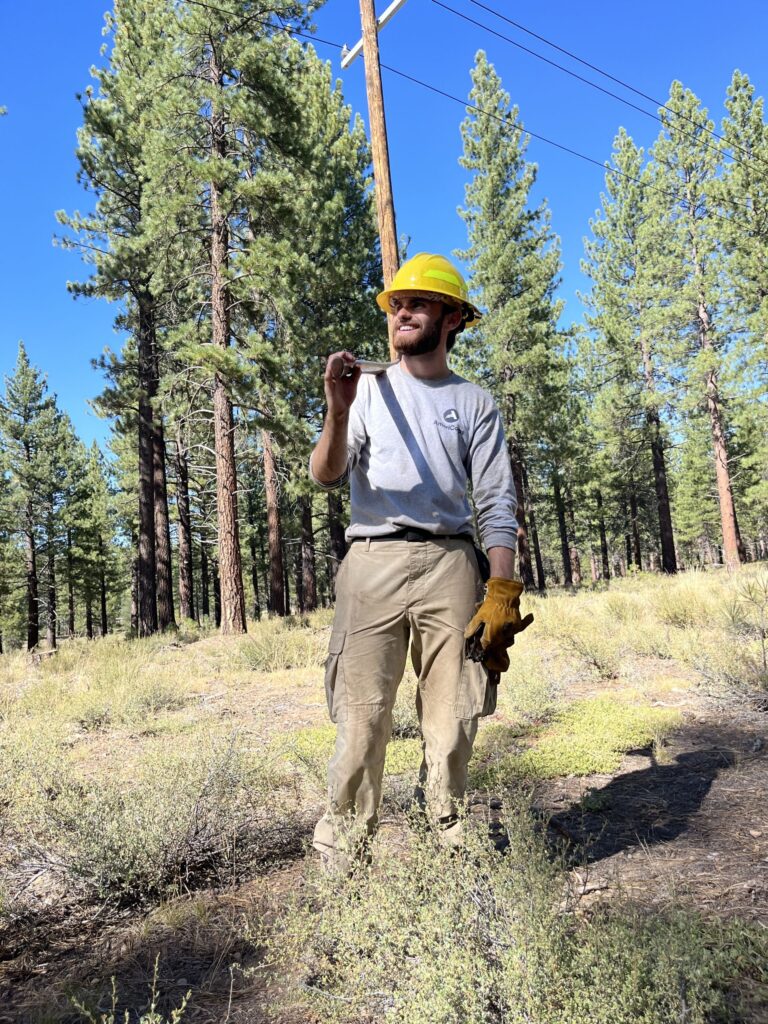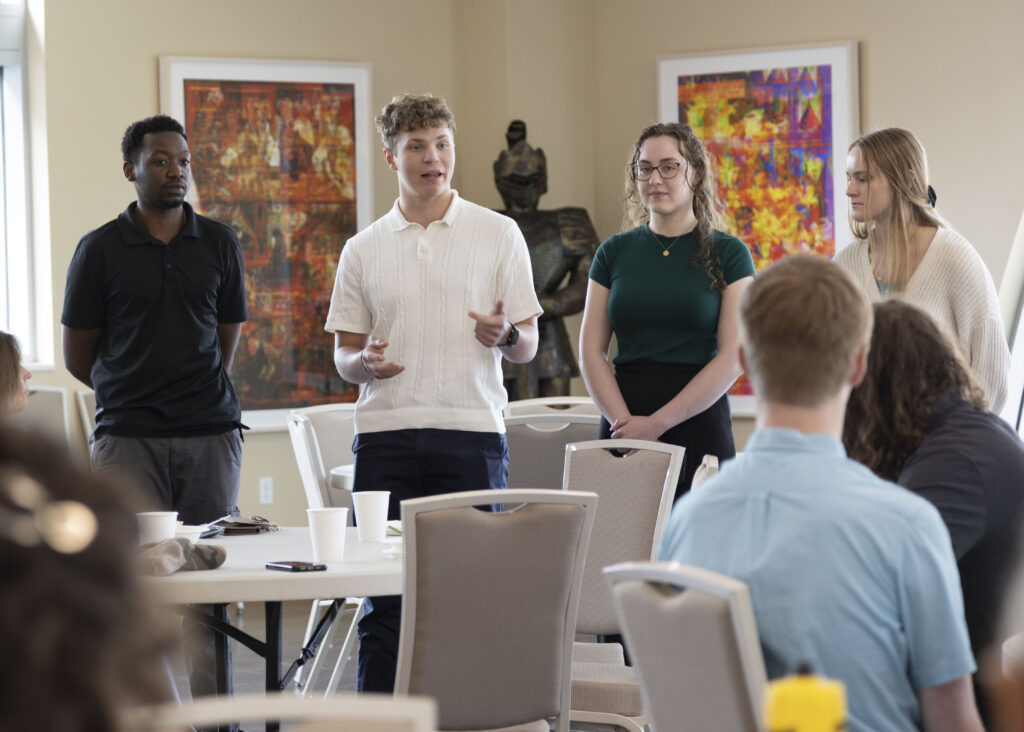Speaker probes political humor in age of Trump
Author Stephen Farnsworth of University of Mary Washington draws from new book in lunchtime Farrell Room talk
Late-night comedy shows are an important source of political information for many Americans even if networks and comics understandably care more about laughs and profits than journalistic fairness or communicating news, says Stephen Farnsworth, author of a new book called Late Night with Trump: Political Humor and the American Presidency. 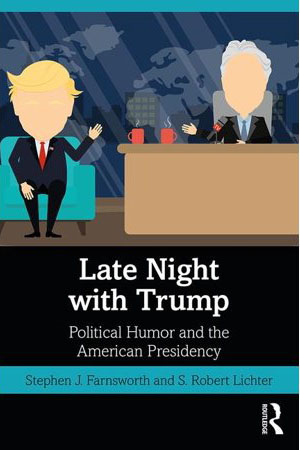
Farnsworth, a political science professor from Virginia and author of several books about the presidency, gave a lunchtime lecture in the Farrell Room Wednesday at the invitation of his colleague and friend Jeffrey Ayres of the Saint Michael’s political science faculty. Farnsworth grew up in northwestern Vermont and so is frequently in the area.
The speaker stressed early in his talk that such comedy shows are not intended nor reasonably expected to be news shows that embrace journalistic standards. If anything, Farnsworth said, both comics and politicians mostly benefit from the attention these shows generate – and political humor, which has been with us since the ancient Greeks or before, always has been a source of political learning, he said.
Yet today in America, the tone of jokes has changed with the times, with more of a critical edge generally, said Farnsworth, who teaches at the University of Mary Washington. He demonstrated what he meant by showing a relatively gentle clip of Johnny Carson ribbing Ronald Reagan decades ago, as contrasted with more pointed monologues from Stephen Colbert and the other modern late-night comics.
While American late-night comics long have focused on presidents for their material, he told his audience of perhaps 20 students, faculty and staff, we have never seen anything like the undivided attention given to President Donald Trump, just considering the sheer volume of jokes about him in late night. Using PowerPoint slides and charts, he backed that up with dramatic statistics – for instance, one chart showed that from a total of about 1,800 jokes about the U.S. president in 2016, which he and his co-author detected in a scientific content analysis of late-night shows, the number went up to 3,000-plus jokes about the president in 2017, which was the year after Trump took office. “If you look month by month, you see the same pattern: all Trump, all the time,” he said.
He offered some theories about that: “Political humor always has been a way to take the pot off the boil and enable people to laugh at leaders, creating a climate that may be less likely to lead to revolution than might otherwise be the case,” he said, telling how the Soviet Union had a whole world of underground political criticism.
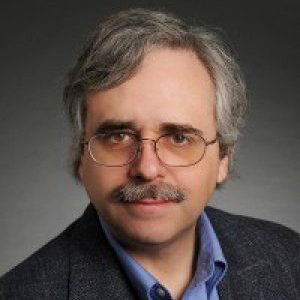
Stephen Farnsworth
In the U.S., he said, “our political vision has always been about bringing leaders down to size,” starting with King George in 1776. But it’s a two-way street, with many politicians trying to build up “street cred” on these shows: Nixon appearing on Laugh In, or Obama on Between Two Ferns with Zach Galifianakis. Obama was better at such appearances than is Trump and did them more, Farnsworth said, since Obama projected a sense of cool and being “in on the joke,” yet also advanced his policy goals — for instance on enrollment into his healthcare program among younger citizens by appearing on Between Two Ferns.
Farnsworth spent a few minutes explaining how he and his co-author went about studying late-night comics through careful content analysis across different categories by coding monologues joke by joke, as well as by subject, target and policy elements. They studied the Jimmy Kimmel, Trevor Noah, Colbert and Jimmy Fallon monologues along with the weekly shows Saturday Night Live, Full Frontal with Samantha Bee, and Late Night with John Oliver. They also distinguished qualitatively between jokes: one-liners versus skits, for instance. Most of the jokes, data showed, targeted Republicans, which is typical and no surprise, not only nowadays but through the history of TV comedy, he said. “These days, about half the time, [late-night comics] are joking about Trump — right around half,” and on all the shows, though Colbert does noticeably more. He told about the time that Trump appeared on Fallon’s show and the host’s gentle treatment of the president cost him viewers that he has never regained; Fallon even apologized for it later. Some comics cover some topics more than other – Fallon a bit less on sex scandals, Noah more on climate change and the alt-right and racism (perhaps owing to growing up in South Africa, Farnsworth speculated).
Increasingly, he said, “we think about political figures based on character and personal concerns” more than on their policies. He said surveys show many viewers don’t like Trump “because of who he is – blustery, bombastic, a liar, too much Twitter.” Farnsworth told how FOX once tried to put forth a late-night conservative comedy show and it was the lowest rated show in the history of the network. Likewise, liberals tried to run their version of a Rush Limbaugh talk radio show and failed, too. “Certain vehicles lend themselves to certain messaging,” he said. “Satire and political attacks seem to be a bit of advantage for Democrats while talk radio is better for Republicans.” He said it seems that talk radio is a great vehicle for generating anger, emotion and intensity and is more interactive, while late night monologues have more distance, are more playful and lend themselves more to humor.
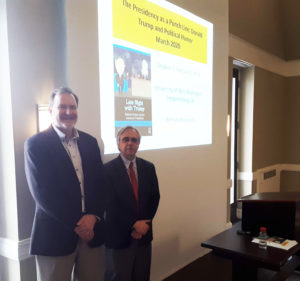
Saint Michael’s political science Professor Jeffrey Ayres, left, invited author Stephen Farnsworth, right, to speak at Saint Michael’s on Wednesday afternoon in the Farrell room. Here they are together after the talk. (photo by Mark Tarnacki)
He cited an old saying about comedy: “Good comedy punches up and bad comedy punches down.” Given that, comedians present themselves as basically powerless with no clout, and so seem to regular viewers like they are “punching up” at the administration. However there is another side to that, he said: “If you’re working class white in the Midwest states you might say, ‘Who are these coastal elites making fun of our president?’ — so to some, this might look like punching down.”
In a question and answer session, the speaker talked of the divisiveness that is more a part of society than before and its effects on comedy. “There’s a lot of pressure toward greater divisiveness,” he said. Emeritus history professor Doug Slaybaugh observed during a question that the president uses the style of an “insult comedian” like Don Rickles at his rallies. But Farnsworth said that lately “it’s not working for him [as well] …because he’s punching down – it might have worked on his way up, but it’s not working for him as much now.”
Farnsworth’s summary conclusions on a final PowerPoint slide were that Trump’s “gilded lifestyle, his policy inconsistency and his combative and often inaccurate rhetoric makes him an appealing late-night target…[and] personal qualities and foibles are particularly common areas of comedic attack, both for Trump and other targets of late late-night humor.”
A student noted in a question that Trump came to power through pop culture, which makes him perhaps more likely to be talked about in pop culture. Farnsworth agreed. “The worst thing you can do to Trump is ignore him, and there’s no chance of that happening,” he said. “The big question is, what these comics will do without him?” He cited Colbert’s comment once that “humor live in the space between what a politician says and what he does,” concluding, “That’s why they can’t quit him, and why they’ll miss him when he’s gone.”

